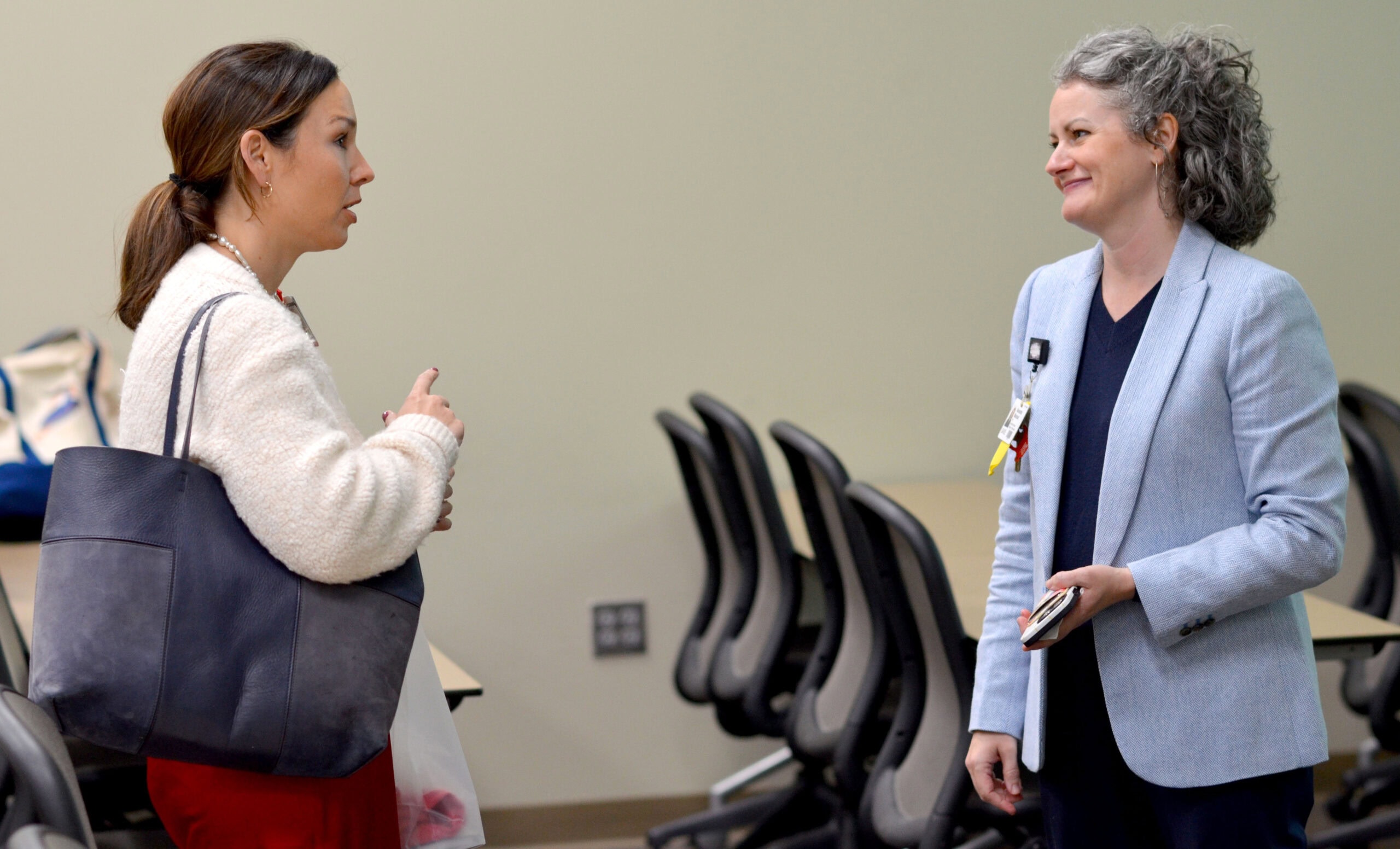Summit Highlights Efforts to Improve Arkansas’ Maternal and Child Health
| The University of Arkansas for Medical Sciences (UAMS) Department of Health Behavior and Health Education recently hosted its annual Maternal and Child Health Summit.
Spearheaded by Alexandra Marshall, Ph.D., MPH, associate professor in the Fay W. Boozman College of Public Health, the hybrid event had more than 80 attendees representing numerous organizations and companies. The summit emphasized the importance of collaborations and supporting the organizations and individuals working tirelessly to solve Arkansas’ maternal and child health issues.
When discussing the value of the conference, Marshall referenced a myriad of developments that contribute to the state’s unsatisfactory status regarding maternal and child health.
“Poverty, low educational attainment, rurality, inadequate access to appropriate health care are just some of the factors,” Marshall said. “But also, we have not had a concerted effort to solve the issue or to train the next generation of public health practitioners, medical providers or policy makers on how to address it. Hopefully, we’re working toward doing that as a unified force — instead of continuing to operate in our silos or in a piecemeal fashion.”
During the summit, initiatives led by Excel by Eight and the Natural Wonders Partnership Council were showcased. Michael Thomsen, Ph.D., professor and director of the college’s Center for the Study of Obesity, and Kari Weber, Ph.D., assistant professor in the college’s Department of Epidemiology, presented information on improving child health outcomes.
Additionally, students from the University of Arkansas Clinton School of Public Service offered findings from their study of the perceptions and consequences of Garrett’s Law, an Arkansas law that expands the definition of child neglect to include an infant born with illegal substances in their body, as a result of the mother knowingly using illegal substances.
Faculty from the University of Iowa and the Tulane University School of Public Health and Tropical Medicine gave virtual presentations on their Title V partnerships.
“I wanted to highlight the partnerships between other academic institutions and their state’s Title V Maternal and Child Health Services Block Grant Program and learn from them as examples,” Marshall said.
She is optimistic that solutions-based events that shed light on maternal and child health, combined with general public conversations about the issue, will set the stage for major steps toward improvement. She hopes the summit embodied that concept.
“We have so many organizations, agencies and institutions doing great work to improve the situation,” Marshall said. “I encourage Arkansans to support the existing initiatives instead of starting another organization. We must find ways to combine our strengths and resources and focus on a shared vision. When we combine our powers and work together, we’ll then have a higher rate of success at improving maternal and child health.”
